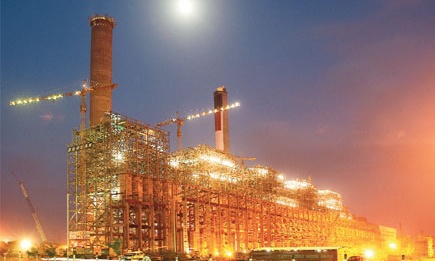
Tata Mundra was supposed to herald a new era of cheap energy for India. Instead, to date, it has served as an example of the tension between development and traditional ways of life.
The first of 16 “ultra mega power projects” (UMPP) planned by the Indian government, Mundra – an enormous 4,150MW coal-fired power station named after the coastal area that is its planned site – would use modern technology to provide affordable electricity to five Indian states.
Part-funded by a $450m (£300m) loan from the International Finance Corporation, the World Bank arm that lends to private companies, it has consistently been described by Tata Power, which won the government contract to build the power station, as “arguably the most energy-efficient, coal-based thermal power plant in the country”.
But in 2011 a tiny fishing village complained to a World Bank ombudsman that, for them, the reality was ash falling from the sky, destruction of a marine environment essential to their way of life, and failure by the World Bank even to acknowledge them as an affected people.
The Wagher, a Muslim minority described by the Indian government as “a socially and educationally backward caste”, say that fishing communities have lived on the Mundra coast for centuries. They practise a traditional form of fishing using nets in the shallows at low tide to catch shoals of fish washed in when the tide rises. The fish are thendried on the sand before being taken to market.
The Association for the Struggle for Fishworkers’ Rights (Mass), a community group representing the Wagher, says that the Mundra plant has damaged the villagers’ livelihoods, in effect displacing them economically. They say the Mundra plant’s waste outlet expels a plume of hot water, destroying mangroves that act as a breeding ground for fish and a natural barrier against cyclones.
They also say that ash from the coal plant settles on fish left out to dry, rendering them inedible. The Wagher claim that pollution from the power station causes them chest and other body pains.
The World Bank claims that the projects it finances are subject to stringent oversight procedures, including assessments of potential environmental or social damage. The Mundra plant was no different, it says, and was designated a category-A project – signifying “potential significant adverse social and/or environmental impacts that are diverse, irreversible or unprecedented”.
However, Mass says the Waghers’ way of life was affected because the project’s assessments failed to consider them at all. In 2013 the Compliance Advisor Ombudsman (CAO), which assesses complaints against the IFC and its projects, published a scathing report into the Mundra project. It found that the various assessments had failed to adequately consider the Wagher people or the plant’s potential impact.
The IFC disputes much of the CAO report. In particular, it says that the fishing villages were temporary and that even though the construction had displaced a sandbar, villagers were still able to set up their seasonal settlements. It accepts that there has been some impact on the fishing community but says this has been addressed by Tata Power. It claims that further studies had corroborated the project’s environmental assessments, that the decline in the fish and lobster catch had predated the Mundra plant, and that Tata Power was undertaking to plant additional mangroves to compensate damage from the power station.
Mundra’s advocates insist its costs would be a small price to pay for a new era of cheap energy to drive India’s growing economy. But the finances underpinning that argument have since been thrown into doubt. In 2011, Indonesia, the intended source of the cheap coal needed to power Mundra, implemented new regulations with a minimum price for exported coal. This markedly increased the cost to Tata of powering the plant. Tata is now asking for permission to pass on the increased cost to the Indian states buying Mundra’s electricity.
Tata Power said: “Tata Power is committed to the local community and continues to work with them on various platforms and multiple community development initiatives.”
Regarding the Waghers’ complaint to the ombudsman, Tata Power said: “We also wish to reinforce that the core issues raised by Mass are not specific to Mundra UMPP and relate to certain generic issues concerning the coastline of Gujarat. CGPL [the Tata subsidiary that owns the Mundra plant] shares a very healthy relationship with the local communities and continues to work with them on various platforms and multiple community development initiatives.”







